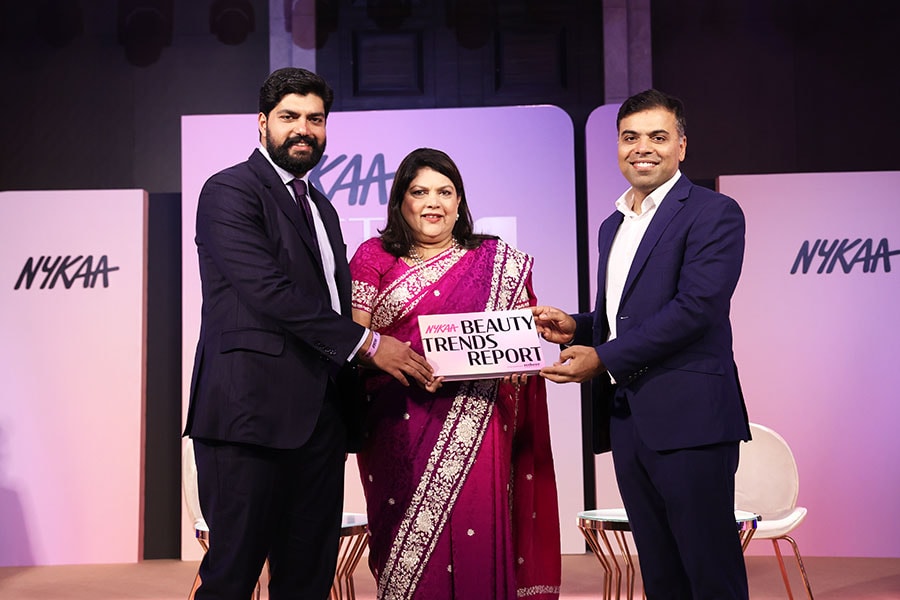India's beauty industry far from skin deep. What's driving the $34 billion ambition?
The Nykaa Beauty Trends Report states that trends like premiumisation of beauty, proliferation of homegrown brands, GenAI for personalisation are transforming the beauty and personal care market
 From left to right - Anchit Nayar, Executive Director and CEO, Nykaa Beauty, Falguni Nayar, Co-founder and CEO, Nykaa and Anil Kumar, Founder and CEO, Redseer Strategy Consultants unveil the first of its kind “Nykaa Beauty Trends Report” at the Nykaa Best in Beauty Summit
From left to right - Anchit Nayar, Executive Director and CEO, Nykaa Beauty, Falguni Nayar, Co-founder and CEO, Nykaa and Anil Kumar, Founder and CEO, Redseer Strategy Consultants unveil the first of its kind “Nykaa Beauty Trends Report” at the Nykaa Best in Beauty Summit


















